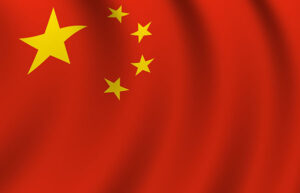 China’s treatment of their Uyghur ethnic minority Muslim population living in East Turkestan [Ch: Xinjiang] has been denounced as genocide by governments around the world and there is growing recognition that, while it is the Uyghur’s plight that has focussed the world’s attention on China’s actions, the people of Tibet have been suffering a similar plight for the last 60 years.
China’s treatment of their Uyghur ethnic minority Muslim population living in East Turkestan [Ch: Xinjiang] has been denounced as genocide by governments around the world and there is growing recognition that, while it is the Uyghur’s plight that has focussed the world’s attention on China’s actions, the people of Tibet have been suffering a similar plight for the last 60 years.
On April 22 the United Kingdom parliament unanimously approved a non-binding motion which said that Uyghurs and other ethnic and religious minorities in China’s western Xinjiang region were suffering crimes against humanity and called for the government to “fulfil its obligations under the Convention on the Prevention and Punishment of Genocide”.
The following day, Zhao Lijian, a spokesperson for China, condemned Parliament’s decision saying it is a “preposterous lie” by “anti-China forces”. China has also said that “China strongly opposes the UK’s blatant interference in China’s internal affairs”.
The Guardian quotes the Chinese Embassy as saying that it denied its policies in Xinjiang constituted either genocide or crimes against humanity and were instead “counter-violent terrorism, de-radicalisation and anti-separatism”.
This vote by the UK Parliament was commended by Bob Menendez, Chair of the US Senate Foreign Relations Committee, who is quoted by the Guardian as saying that the UK parliament had “shone a light on the egregious abuses the Chinese state commits against the Uyghur people. The free world must be united in holding the Chinese government to account for these abuses.”
A new bill in the United States includes policies for Tibet, Taiwan, Hong Kong, Xinjiang and is designed to counter China’s economic and geopolitical power. Tibetan Buddhists are included among those whom the US wants to foster democratic and human rights principles in its regional strategies to fight the People’s Republic of China.
The Bill notes that China spends extensively on influence operations, including multi-billion dollar advertising campaigns, and says the US government should find ways to “prevent the export of China’s authoritarian governance model to countries around the world”.
A team of independent United Nations experts declared in March that the Chinese government in Xinjiang is in violation of all 50 sections of the Genocide Convention. They said that China is “seeking to completely destroy” the country’s Muslim group.
In Europe, a co-ordinated effort by the European Union, the UK, the US and Canada has seen sanctions imposed on Chinese officials because of their human rights abuses of minority groups.
Ireland has become twentieth nation to sign up to the Inter-Parliamentary Alliance on China (IPAC), an international cross-party group of legislators working to create a coordinated response to counter China on global trade, security and human rights.
Tibet Lobby Day took place online in the European Parliament on April 19, co-organised by the International Campaign for Tibet and the European Parliament’s Tibet Interest Group. Participants from six countries in Europe suggested concrete ways in which the European Parliament could further increase its support for the Tibetan people. The European Members of Parliament welcomed the opportunity to exchange directly with Tibetans.
In Estonia, The Chinese Embassy in Estonia paid for a full-page advert in the newspaper Õhtuleht, saying the allegations of genocide and forced labour carried out by China against the Muslim Uyghur minority in Xinjiang are false and that Xinjiang’s previous backwardness has now been replaced by prosperity and progress. Õhtuleht’s editor-in-chief later apologised to readers. Two other Estonian newspapers have said that if China wishes to advertise through them, they “will definitely not publish!”, one stating, “Our country must have its own values and will never promote communism.”
Lithuania is joining its voice to recognise Uyghur genocide despite pressure from China on their MPs. Lithuanian MP Dovilė Šakalienė, one of those sanctioned by China, is one of the founders and leaders of IPAC. She reports receiving “very strict, categorical and pressuring letters from the Chinese Embassy.”
Jakub Janda, of the European Values Centre for Security Policy in the Czech Republic, is quoted in News Eastern Europe as saying, “China tracks closely who is exposing Chinese hostile behaviour in particular countries [and the] Chinese embassies … attack these individuals.”




 Print
Print Email
Email